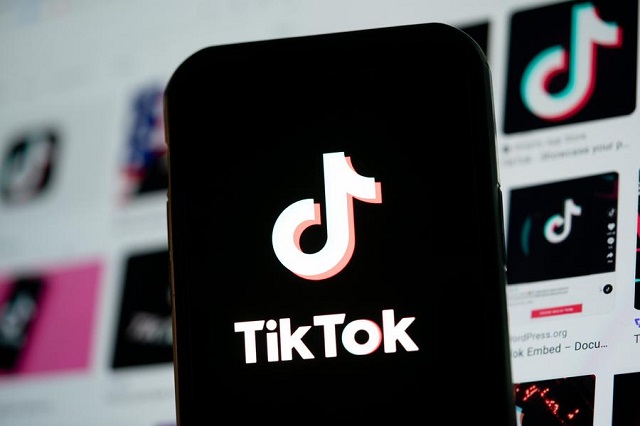
What the US needs is data privacy, not a ban on the popular Beijing-based video-sharing platform
COMMENT | AARON GLASSERMAN & MONICA GRECO | The United States House of Representatives recently passed the Protecting Americans from Foreign Adversary Controlled Applications Act. It is no secret that the Bill takes aim at TikTok. The massively popular video-sharing platform is owned by Beijing-based ByteDance and thus subject to the laws of the People’s Republic of China, and potentially to the control of the Communist Party of China (CPC), despite assurances to the contrary from company executives.
If the Senate approves the Bill, and U.S. President Joe Biden signs it into law (as he has said he would), ByteDance would be forced to sell TikTok to a non-Chinese company within six months or be banned from U.S. app stores. The reasoning, according to the legislation’s bipartisan sponsors, which include the chair and ranking member of the House Select Committee on the Chinese Communist Party, is that TikTok undermines democracy and threatens national security by allowing China to “surveil and influence the American public.”
To be sure, TikTok poses risks to American users. But the app is only one small part of a much larger problem: the lack of an affirmative model of data privacy that protects privacy and civil liberties. By targeting TikTok, U.S. policymakers are merely boosting the company’s competitors while sapping momentum from the push for effective data and algorithmic transparency regulations.
Supporters of the Bill rely on two arguments. The first is that TikTok is a propaganda machine that enables the CPC to flood the app’s enormous user base with pro-China or otherwise harmful disinformation, thereby endangering U.S. national security. Of course, the CPC wants to control China’s global image. As the State Department put it in 2023, “Beijing seeks to maximise the reach of biased or false pro-PRC content.” That is why Chinese President Xi Jinping has repeatedly exhorted his country’s propaganda apparatus and citizens to “tell China’s story well.”
But it is easy to exaggerate the effectiveness and danger of Chinese propaganda. So far, China’s well-told story has fallen on deaf ears, at least in the U.S., where the need to counter the Chinese threat is one of the few points on which Republicans and Democrats agree. The country also has a dearth of cultural exports, with no Chinese equivalent to Japanese anime or South Korean K-pop, while enrollment in Mandarin-language courses at American universities has been dropping for years, further eroding China’s soft power.
Moreover, if China is attempting to use TikTok to enhance its image abroad, it is failing miserably. Attitudes toward China are largely and increasingly negative in many Western countries, which reflects the country’s reputation as an authoritarian bully, its egregious human-rights violations, and its association with the COVID-19 pandemic.
A related concern is that China can manipulate content on TikTok, suppressing videos with anti-CPC narratives and perspectives that fail to “tell China’s story well.” In fact, this is a well-documented component of the country’s media strategy: researchers at Rutgers University recently found that topics deemed politically sensitive in China were underrepresented on TikTok compared to Instagram.
Chinese propagandists could likewise spread inflammatory content to stoke grievances and sow divisions in American society, as Russia has been accused of doing in recent years. Yet the Russian case – which involved Facebook and Twitter (now X) – demonstrates that this problem is hardly unique to TikTok. Nor is it confined to foreign adversaries: numerous studies have shown that social media can normalise harmful behaviors and fuel hate speech, especially among adolescents. The challenge of algorithmically accelerated alienation goes beyond TikTok, and singling out the app will do little to fix it.
That brings us to U.S. policymakers’ second claim: TikTok provides the CPC with access to Americans’ data, even when stored in the U.S. Data security is undoubtedly a serious concern, not least because internet users may be vulnerable to surveillance and exploitation by authoritarian regimes. But the world has no shortage of unregulated and underregulated data brokers, many of which operate openly in the U.S. and other liberal democracies. Banning TikTok will not change the fact that private companies and state agencies alike have tremendous power to collect and store data about almost every aspect of our lives. And forcing ByteDance to divest from TikTok will simply put data collected by the app in the hands of another actor. It would be naive to assume that these actors have good intentions merely because they have no direct ties to the Chinese state.
Treating disinformation and data insecurity as TikTok-specific problems serves the interests of rival tech companies like Meta and those who seek to weaponise national-security concerns to prevent sector-wide regulation. Ironically, doing so also plays into the Chinese claim that American democracy is a sham, corrupted by corporate interests and lobbyists. What is more, it would be seen as hypocritical, since the U.S. has condemned platform bans in other countries (such as the 2021 suspension of Twitter in Nigeria), citing freedom of expression and access to information as pillars of democracy.
The real threat that TikTok represents is much greater and more deeply entrenched than U.S. policymakers want to admit: the unregulated collection and trafficking of personal data in the service of private profit and state control. To solve this problem, lawmakers must work with civil society to do as many have suggested: develop an affirmative model of data privacy that guarantees civil liberties, requires algorithmic transparency, and empowers ordinary people to understand how corporate and government entities are using their data. Without these structural reforms, a TikTok ban will be little more than an empty win for a gridlocked Congress.
*****

Aaron Glasserman, an Academy Scholar at the Harvard Academy for International and Area Studies, is a China Fellow at the Wilson Center. Monica Greco is Senior Program Officer at Open Society Foundations.
Copyright: Project Syndicate, 2024.
 The Independent Uganda: You get the Truth we Pay the Price
The Independent Uganda: You get the Truth we Pay the Price





